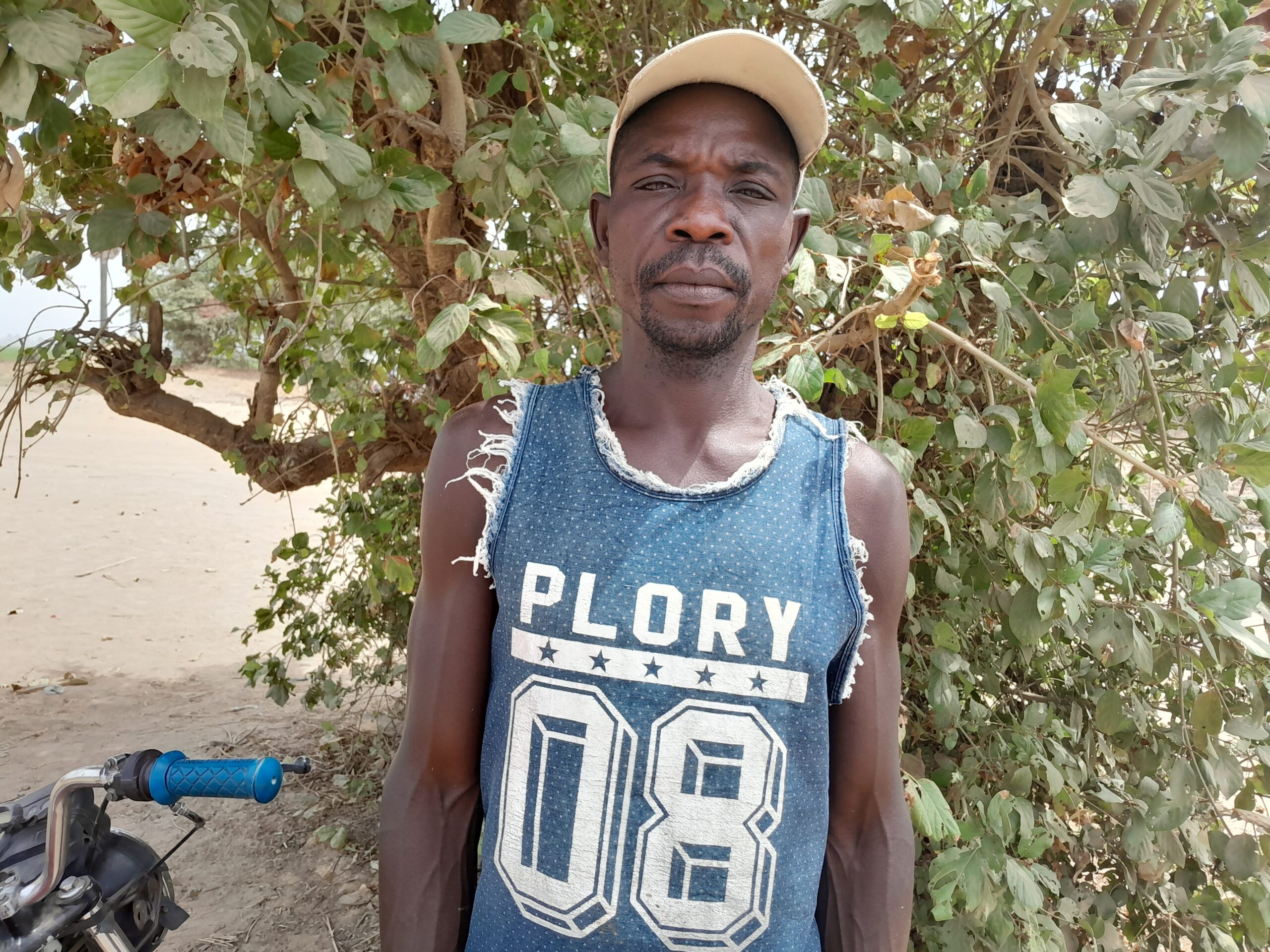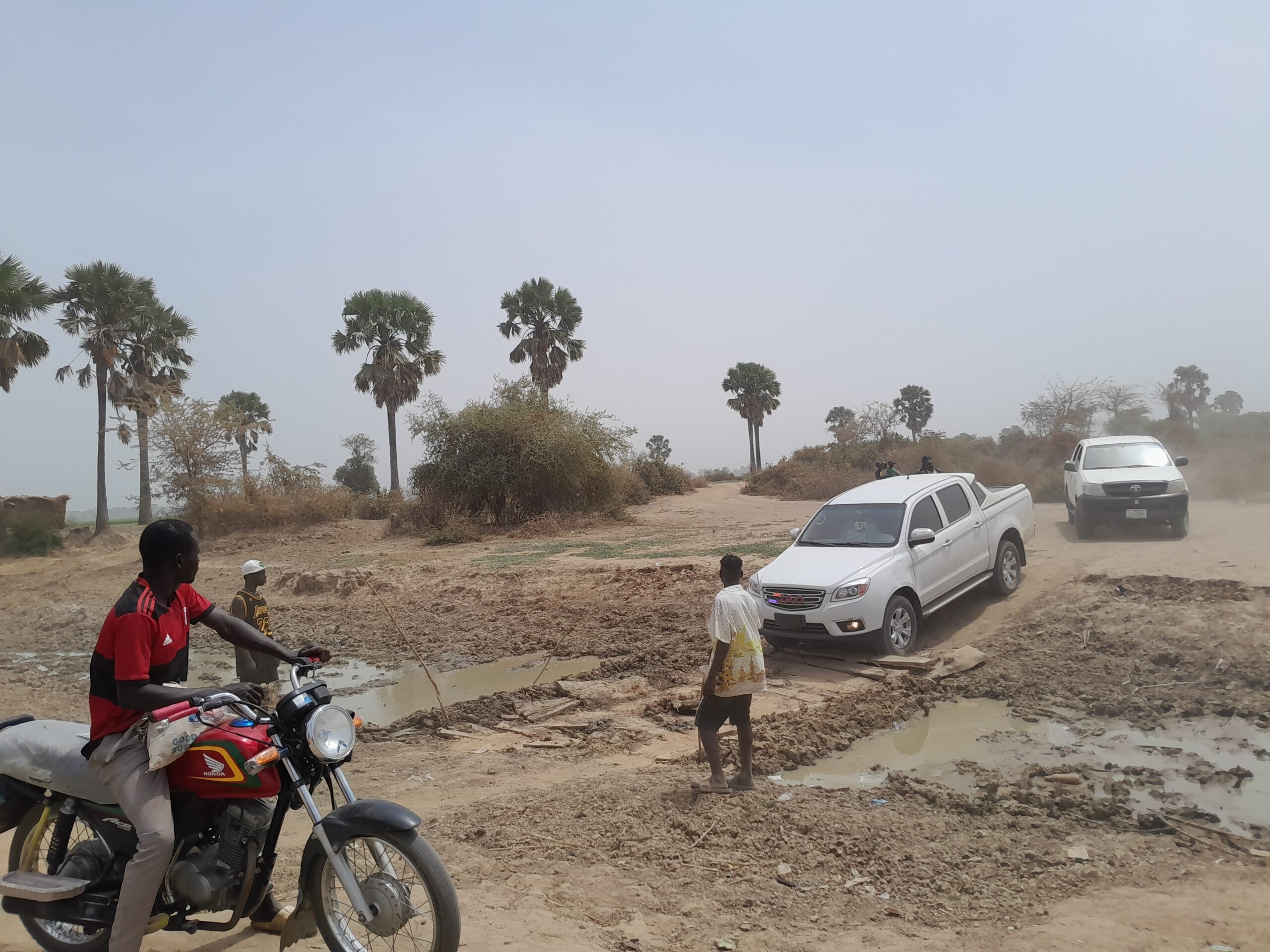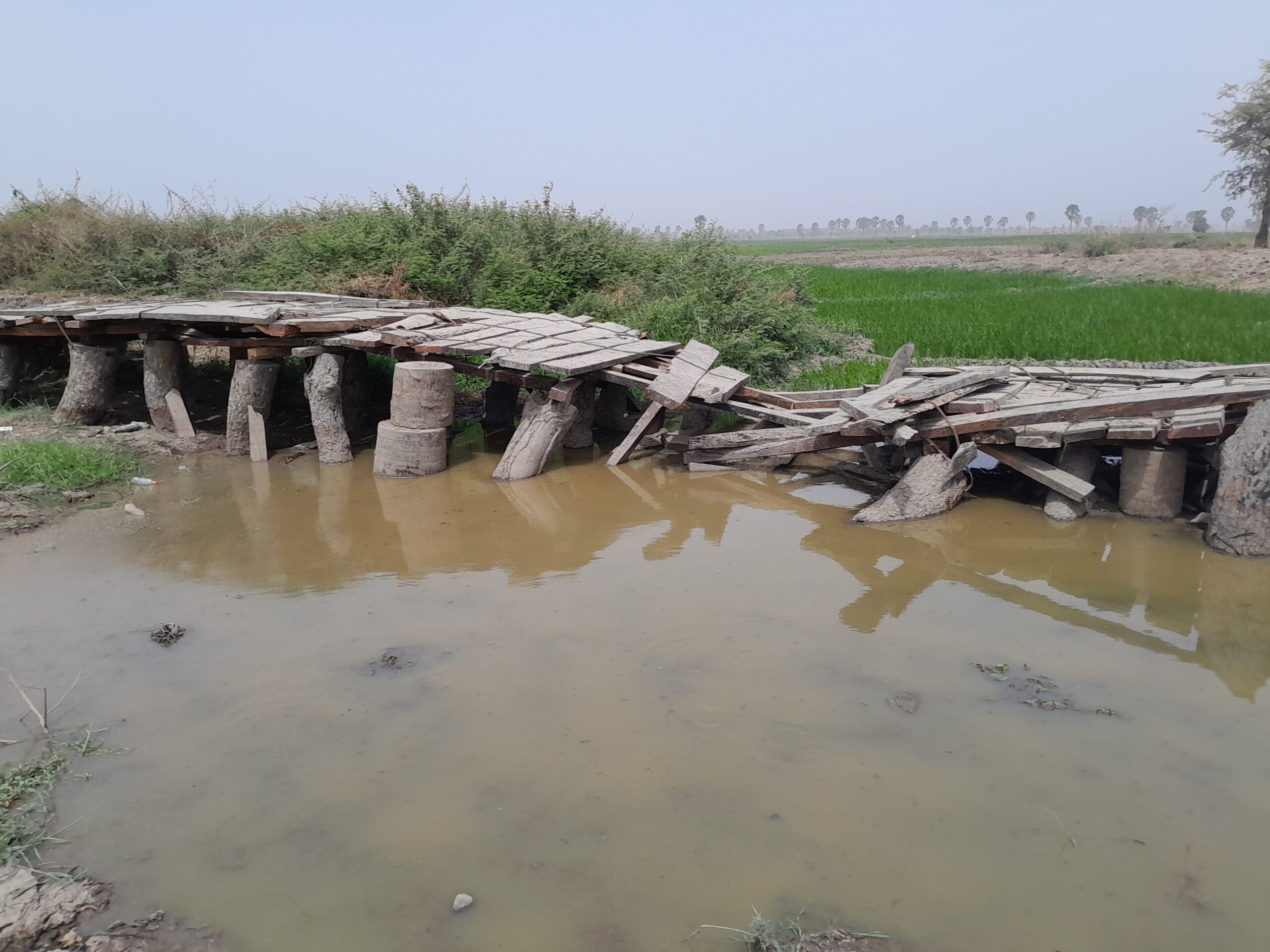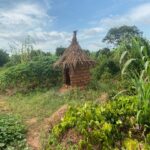When Nicodemus Thomas completed his NCE at the College of Education Zing in 2012, he hoped that he could secure a job in the civil service. But his plans fell through. The 51-year-old, who hails from Karim-Maundi, an old settlement in northern Taraba State, dabbled into commercial farming instead to make a living.
Although one of Taraba State’s largest and most ethnically diverse local government areas, Karim-Lamido has faced systemic neglect for more than three decades. Its once-thriving agricultural production is on the brink of decline owing to deteriorating roads, which pose a challenge to farmers when transporting their harvests.
“Since before I went to school, this place remains {sic} as it is. The government failed to do anything. Our road has been abandoned without any tangible intervention,” Thomas lamented.
Residents across communities paint a grim picture of how this road transformed into a death trap, especially during the rainy seasons. Despite a N204 million payment to Mould Nig Ltd. in June 2021, only 13 kilometers of substandard asphalt have been laid, while much of the Jalingo-Lau-Karim-Lamido Road (Phase II) remained abandoned as of October 2022, according to TrackaNg’s investigations reported by Sahara Reporters.
In addition to the snags it poses for Karim-Lamido residents travelling to Jalingo, the state capital, the bad road network raises grave concerns about accountability and the adverse effects on the hapless communities.
Travelling from Jalingo to Karim-Lamido, this reporter encountered first-hand the wretched conditions of the abandoned road project. Like other travelers, he navigated a river via a canoe, marking the commencement of an even more challenging substandard roadway before arriving in the town of Karim-Lamido.
Since when he was in school, Thomas had realized the significance of a good road network in community. Amidst the collective struggle, he gathered a team of like-minded individuals for a local panacea that would ease the hardship on motorists and passersby plying the deplorable route.
Thomas pooled resources with other individuals to construct a wooden bridge. The wood for bridge was sourced from a neighboring forest, where, although no mean feat, Thomas and the others ventured each year with their machinery. Some of the wood was equally used to construct the bridges across many different locations along the road.

At times when resources fell short, or there was a shortage of machinery and limited hands, they pooled funds to purchase wood from the local market.
“The years I spent navigating these roads helped me understand their negative impact. Our decision wasn’t just about fixing some parts of the road. It was about paving the way for a brighter future. We wanted to ease the hardships faced by countless travelers,” Thomas told Prime Progress.
Japhet Nicodemus was one of the youths who was motivated to join Thomas. The 26-year-old carpenter helped to construct the wooden bridge, which he described as a community development project.
“I’m putting all my energy here to see that we make things easier for motorists and passersby. I find pleasure in doing this work. We aim to improve the state of this road from bad to good,” he expressed.
Thomas’ intervention is hardly an isolated example, however. Individuals across far-flung communites have joined forces sometimes for the purpose of groupshopping during the pandemic or to keep track of constituency projects and hold their politicians to account.
A short distance from where Thomas’ bridge lay is another wooden bridge erected by one of his friends who were pioneers of the intervention.
At the time this reporter visited the site, the boss who presided over the operations on the bridge wasn’t available. Samuel Audu, a dedicated young man who joined the project four years ago, stood in his place instead. Spurred by his passion for community development, Audu oversees maintenance and assists travelers.
“I joined this project to contribute with my sweat to promoting community development. This is the reason why I’m always here,” the 23-year-old admitted.
Testimonies
With improved access to markets, this community-driven project has instilled a sense of hope in residents like Iliya Apolos, a motorcyclist whose route stretches from the town of Karim-Lamido to the riverside.
“We suffer a lot here, especially during the rainy season. Sometimes, the road becomes impassable even on foot. But thanks to this project, the new local bridge is a lifesaver. It’s a real game-changer for us, okadas,” Apolos shared.
Aminu Mamman, another local motorcyclist, recounted that during the rainy seasons it took him forever to reach one of the locations at the riverside. He said the roads were flooded, and sometimes, his motorcycle would even get stuck. Now, with the improved road conditions, he can transport his passengers there in half the time.
“This makes the passengers happy. I feel happy, too. It allows me to make more trips in a day. This project has been a huge blessing to our business,” Mamman said.
Challenges remain
Not without challenges, this locally-driven solution is improving lives in Karim-Lamido and connecting residents with opportunities outside the community.
Despite its positive impact, Thomas highlighted that constructing and maintaining these structures requires consistent effort and resource mobilization.
“These wooden bridges we build don’t last forever. They wear out over time, and we have to fix them up again and again. That means we have to source more wood and nails. The work is tough, but it’s the best we can do right now,” Thomas stated.
Additionally, the project relies on felling trees, raising concerns about environmental sustainability. This is because the use of wood for constructing bridges presents a complex issue in the context of climate change.
Balancing the act
In response, a climate change expert, Olanike Olugboji-Daramola, stressed that the solution providers can explore other sustainable materials like steel, rubber concrete, stones, and iron in constructing the bridges.
“They need to be educated on the roles that trees play in the environment and why they should be protected. I am sure that there would be concerns about how they would be able to raise needed funds. Well, they can explore what I would call a community agency. The members of the community should be approached to contribute towards the project, as it would be of immense benefit to their community,” she told Prime Progress.
The climate expert suggested that the group pool resources together and then recoup their expenses by charging a toll fee from community members who use the bridge.
Hoping for more
For over a decade, Thomas has been out there on the road, keeping this project going. While occasional motorists offer tokens of appreciation, government support has been out of reach.

During his visit, this reporter saw a convoy of government vehicles drive through the wooden bridge, leaving only a cloud of dust in return.
“Since the government can not help us. We aren’t backing down. We will continue to do it by ourselves. If I should be honest, I would say the local government chairman was the only person from the government who once donated some money. While we appreciate it, there is a need for them to do something tangible,” he affirmed.
Nowadays, Thomas hopes the government can cash in on Karim-lamido’s agricultural potential to repair the bad roads, or construct a culvert at least. This would make a significant difference, he believes.
Nicodemus Thomas, a 51-year-old from Karim-Maundi in northern Taraba State, turned to commercial farming after failing to secure a civil service job post his NCE in 2012. The local government area of Karim-Lamido, despite being one of the largest and most ethnically diverse in Taraba State, has faced neglect for over thirty years. Poor road conditions have severely affected agricultural activities and posed difficulties for farmers in transporting their crops.
A government contract worth N204 million for road repairs resulted in only 13 kilometers of substandard asphalt, leaving much of the key Jalingo-Lau-Karim-Lamido Road abandoned. This neglect compelled Thomas and other residents to take matters into their own hands, leading to the construction of wooden bridges from locally sourced wood. Despite being a challenging task, these local interventions have significantly eased transportation difficulties and improved local market access.
Community members like Japhet Nicodemus and Samuel Audu have also contributed actively to these projects, driven by a desire to improve their living conditions. However, these efforts face sustainability issues, including the repeated need for repairs and concerns about deforestation. Climate experts propose using more sustainable materials and community funding to maintain these structures.
Government aid has been minimal despite the visible impact of these community-driven projects. Thomas and his team continue their work, hoping for more substantial government intervention to fully leverage the region's agricultural potential and improve infrastructure sustainably.







The people of Karim-Lamido prefer trading down to Gombe rather than going through the wretched road that leads to the capital city, Jalingo. The Taraba State government needs to award road contracts to the local governments that can majorly help in providing food security to the people of the state.
Thank you for covering this story.